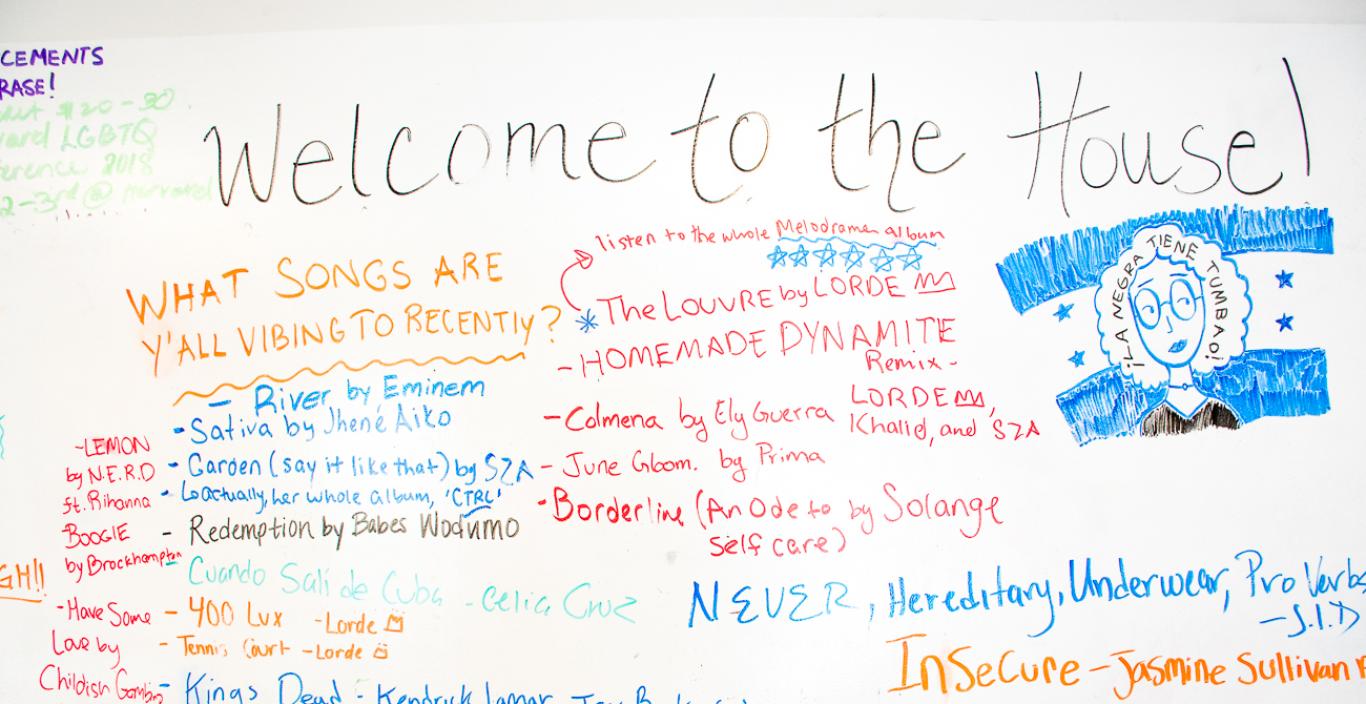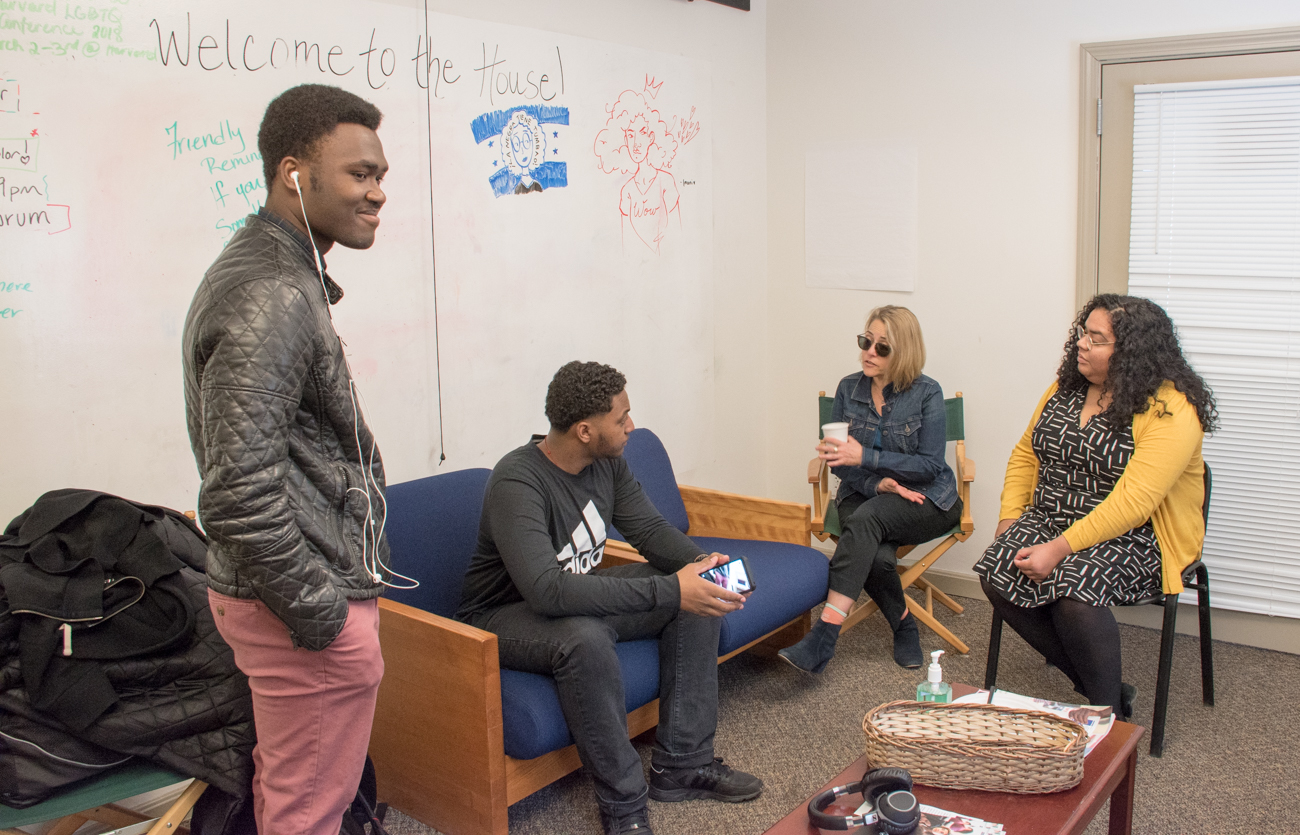A new study lounge dubbed The House has become a hub for students seeking respite and challenging conversation.
Created for students affiliated with the Urban Scholars Initiative, Lesley Center for the Adult Learner and the Office of Multicultural Affairs and Student Inclusion, The House appeals to students of color and commuters who often struggle to get their footing on campus.
“It can be a little bit unsettling to be in such a different environment from what I’m used to,” said sophomore Jocelyn Martinez. “Whenever I come to The House, I’m in a space where I can feel comfortable.”
The Office of Multicultural Affairs and Student Inclusion, Urban Scholars Initiative and Lesley Center for the Adult Learn established the lounge this year after students voiced the need for an inclusive space for students on campus. The creation of the lounge is one of several initiatives to better meet the needs of underserved students, including a food pantry where commuter students can pick up snacks and light meals.
Students often stop at the pantry before heading to The House, located at 13 Mellen St.
An uncensored space
The lounge features a few computers and seating space for at least 10 people, and it has become a respite for minority students, says senior Mosheh Tucker.
“I come here to relax and to make conversation,” said Tucker, who has advocated for more services for students of color. “It’s a more uncensored space.”
Tucker often feels the need to censor his conversations among white members of the community due to microaggressions — subtle prejudices — that he experiences on a regular basis. Tucker finds there is more openness in the conversations that take place in The House. It’s also a place where students can share their common experiences and challenge each other’s ideas in a constructive way.
“Imagine being on the Lesley campus and experiencing the microaggressions that we experience, experiencing the racism in the classroom that we experience,” he said. “This space creates an opportunity to engage in conversation and gain more perspective on certain situations.”
Office of Multicultural Affairs and Student Inclusion Director Lilu Barbosa has heard numerous reports of these microagressions, including someone describing a student as “exotic” and people assuming that individuals from a particular continent are all the same.
Student Michel Denis, enrolled through the Lesley Center for the Adult Learner, has also found community through The House. Now in his second semester, the Haitian native came to Lesley through the Bunker Hill Community College partnership, and said the transition was difficult. He had a hard time making friends, figuring out which classes to take and getting involved.
Connecting with fellow students of color and varied backgrounds (Denis is half-Cuban) has helped him integrate into university life.
“When I went to the center, it was so easy,” he said. “It’s a place where I feel like it’s home.”
This is exactly the purpose of the house, said Barbosa.
“While students navigate their college experience, it is important to offer them a space where they have ownership and that is an affirming space given all of their identities,” he said.
Room for conversation
As The House primarily draws students of color, the space could be misconstrued as a way for minority students to segregate themselves from the rest of the university, but Tucker rejects the idea.
He says sometimes they just need a break from people who can’t relate to their experiences.
“We’re consistently out there. We don’t spend the whole day in here,” he said, adding that anyone is welcome to join in the conversations at The House.
Barbosa agreed.
“For students of marginalized identities, to navigate an environment where the dominant norms, languages and perspectives may be different than their own, it is important to also provide them a space where the environment is shaped by their own identity-based norms — a space that is affirming culturally, ethnically, linguistically, with respect to gender identity, socioeconomic status and in other ways,” he said.
Barbosa, and many students, would like to see additional inclusive spaces created on campus.
“It is important to provide them with access to a space where they can be at ease, do homework, engage socially and connect with staff members when needed,” he said.

